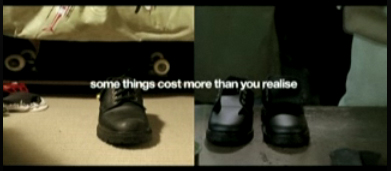An excellent video from Radiohead for MTV’s EXIT campaign.
-
Search It!
-
Recent Entries
- Some Things Cost More Than We Realize
- September in DC
- Human Trafficking in Hair Salons
- FEATURED! Causecast
- Speak Up to Stop Unfair Trade
- There Is A List of Goods That Use Slave Labor–But Where Is It?
- 249 Mile Run in Chains for For Human Trafficking Awareness
- Greater Cincinnati Human Trafficking Report Findings Released
- Tafficking In Men On The Rise
- What To a Slave is the 4th of July?
-
Links
- Alliance for Fair Food
- ANTI-SLAVERY EVENTS!
- Antislavery.org
- BUY NOBODIES
- Change.org
- Coalition of Immokalee Workers
- David Swanson
- Donate and Support
- Excerpt
- Fair Trade Online Store
- Fair Trade Sports
- Fairer Globalization
- Free The Slaves
- iAbolish blog
- John Bowe on MySpace
- JohnBowe.info
- LibraryThing
- Modern Slavery Map
- NoSlaves Blog
- Not For Sale
- Presbyterian Church USA: Fair Food
- Press
- Random House
- Reviews
- SIGN THE PETITION TO END SLAVERY
- Slavery.Alltop
- Student/Farmworker Alliance
- Technorati Profile
- The Amazing Change
- WRATH ARCANE

